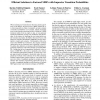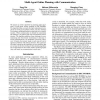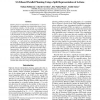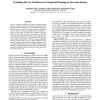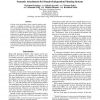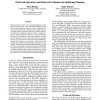126
click to vote
AIPS
2009
15 years 3 months ago
2009
When modeling real-world decision-theoretic planning problems in the Markov decision process (MDP) framework, it is often impossible to obtain a completely accurate estimate of tr...
104
Voted
AIPS
2009
15 years 3 months ago
2009
In this paper a planning framework based on Ant Colony Optimization techniques is presented. It is well known that finding optimal solutions to planning problems is a very hard co...
121
click to vote
AIPS
2009
15 years 3 months ago
2009
We propose an online algorithm for planning under uncertainty in multi-agent settings modeled as DEC-POMDPs. The algorithm helps overcome the high computational complexity of solv...
114
click to vote
AIPS
2009
15 years 3 months ago
2009
It has long been recognized that users can have complex preferences on plans. Non-intrusive learning of such preferences by observing the plans executed by the user is an attracti...
AIPS
2009
15 years 3 months ago
2009
126
Voted
AIPS
2009
15 years 3 months ago
2009
Despite the extensive development of first-principles planning in recent years, planning applications are still primarily developed using knowledge-based planners which can exploi...
119
Voted
AIPS
2009
15 years 3 months ago
2009
Planning based on propositional SAT(isfiability) is a powerful approach to computing step-optimal plans given a parallel execution semantics. In this setting: (i) a solution plan ...
121
click to vote
AIPS
2009
15 years 3 months ago
2009
PDDL2.1 supports modelling of complex temporal planning domains in which solutions must exploit concurrency. Few existing temporal planners can solve problems that require concurr...
117
click to vote
AIPS
2009
15 years 3 months ago
2009
Solving real-world problems using symbolic planning often requires a simplified formulation of the original problem, since certain subproblems cannot be represented at all or only...
95
Voted
AIPS
2009
15 years 3 months ago
2009
Heuristic forward search is the dominant approach to satisficing planning to date. Most successful planning systems, however, go beyond plain heuristic search by employing various...
